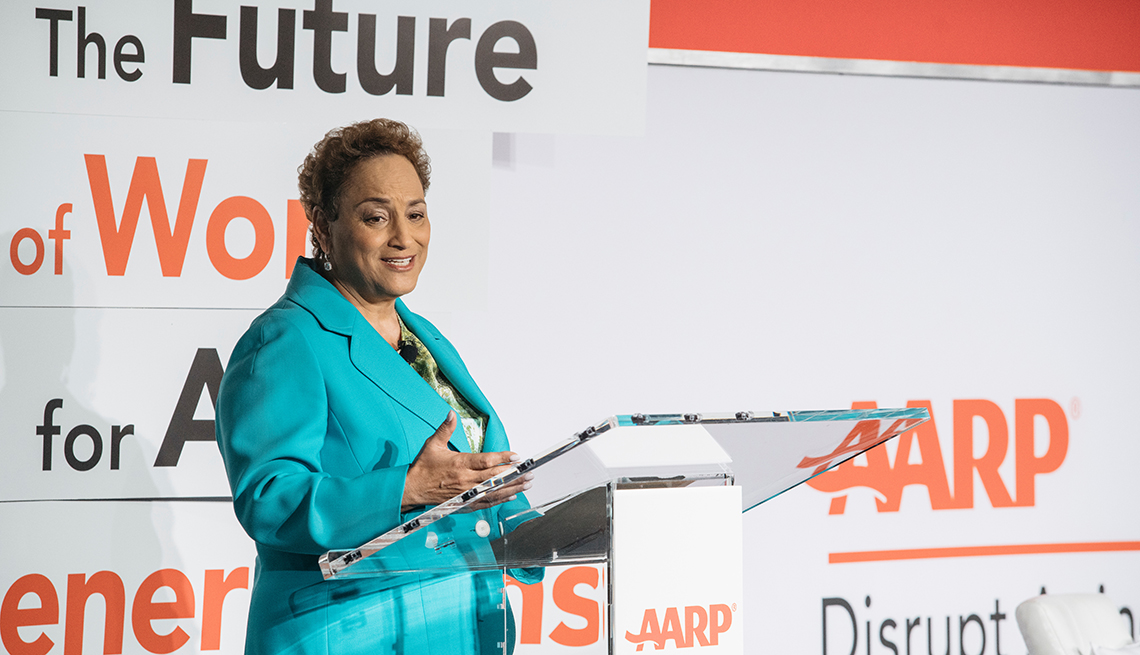AARP Hearing Center
Because people are living and working longer, today's employers should adapt to benefit from the talent that different age groups bring to the job.
That and other ways in which the modern workforce will need to evolve was the focus of an AARP-hosted conference of influential business leaders and researchers from around the world in Washington, D.C., this week.
"We are going to have to be more and more creative about how we address and come up with solutions that help us keep our very valuable employees in the workplace,” said AARP CEO Jo Ann Jenkins at the “Disrupt Aging: The Future of Work for All Generations” event. “We need to make sure that policies that are being put in place — whether it's at a local community meeting or a state office or at the federal level — that these policies that are being created are ageless, that they are making sure that they're not being detrimental to either the young or the old."
Jenkins said that AARP has partnered with the Organisation for Economic Co-operation and Development (OECD), the World Economic Forum and 50 employers for a project to share resources and knowledge about the best practices for making workplaces better for all generations.
That project, called “Living, Learning & Earning Longer,” will hold a series of workshops this summer and fall for its members, with the intent of ultimately producing an online resource for employers that will be launched at a 2021 World Economic Forum meeting in Davos, Switzerland.
"We want to make sure that this idea of working longer and living longer and earning longer is a principle that is spread not just here in the U.S., but across the world,” Jenkins said.
One example of an innovative practice for recruiting and retaining talents from different age groups is the “returnship” at Morgan Stanley. Peg Sullivan, global head of talent management for the investment bank, said that the company was seeking to increase the numbers of women in its senior leadership positions.
Recognizing that many women leave their careers to become family caregivers — either for their older relatives or young children — Morgan Stanley in 2014 launched the “returnship” to identify these workers and help them transition back to the workforce through a 12-week position. Sullivan noted that the program is open to all genders and nearly 300 people have participated in it so far.































































